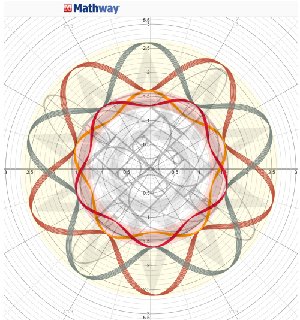______________________
1 circle of 360 degrees as r = (1),
+√5 vertices of a pentagram (36x5=180),
/2 possible directions (180x2=360).
Using π instead:
(π + π√5) / 2π
yields the same 1.618...(Φ)
and if/when squaring as Φ²
naturally derives the '1'
thus: Φ² = Φ + 1.
π + π√5 / 2π = 1.618... (Φ)
(π + π√5 / 2π)² =
6π² + 2π²√5 / 4π² =
3π + π√5 / 2π = 2.618... Φ + 1
-(π + π√5 / 2π = 1.618... (Φ))
_____________________________
2π, thus π → 3π is '1' full rotation as 2π
or the two "directions" of a pentagram:
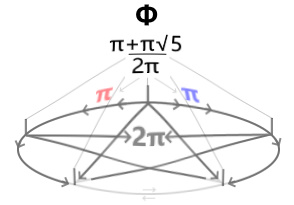
By allowing π to produce Φ, the natural emergence of '1'
is the product of their golden arrangement squared, thus
Φ² = Φ + 1 and reflects the bi-directional symmetry
as it exists throughout all of nature, including the human body.
"Opening up" Φ by taking the root of it
yields +/- Φ such to yield the constituency of Φ:
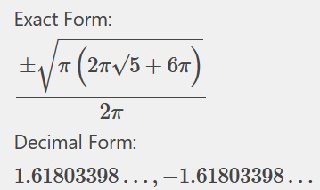
____________________________________________
π thus relates to either +/- Φ with 2π capturing both.
1+√5
‾‾ 2 ‾‾ = 1.618...
is thus not as inductively rooted as:
π+π√5
‾ 2π ‾ = 1.618...
which naturally concerns the circle r = 1
if/when squared/reduced:
3π+π√5
‾ 2π ‾ = 2.618...
or simply Φ + 1, a difference of 2π.
Thus, understanding "1" as an qualitative expression of 2π ie. {one full rotation},
lends itself to there being an internal intrinsic symmetry which obeys the "golden rule".
In another manner of speaking: what Φ is to π, Φ² is to 3π, or the "addition" of one full rotation as 2π.
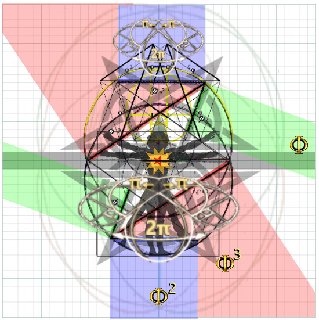
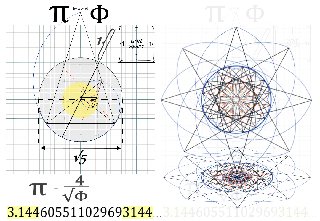

Plotting Φ produces a spiral relative to a fixed origin, thus
the arc of it can be used to measure π and found to be
in whole integer relation to Φ. This relationship is presently
ignored by establishment science owing to the same having
established false premises esp. as they concern the nature
(or relative lack thereof) of space and time: they are not
but aspects of motion, thus have no intrinsic geometry
until in relation to one another. The same is true for Φ and π
the former always geometrically satisfying x²-x-1=0 thus
π is only 'transcendental' outside of these parameters
erroneously otherwise taken to be always so.
